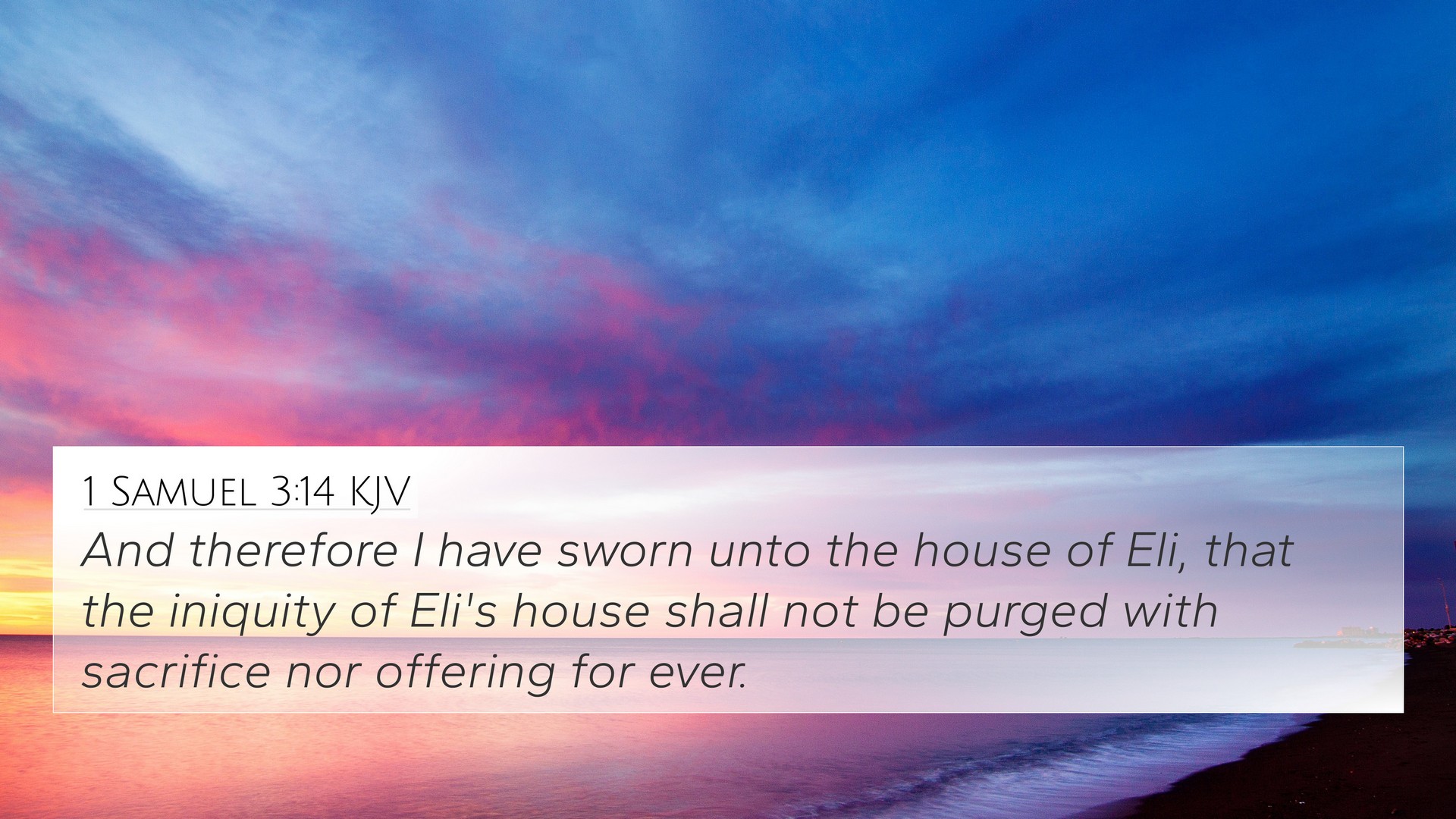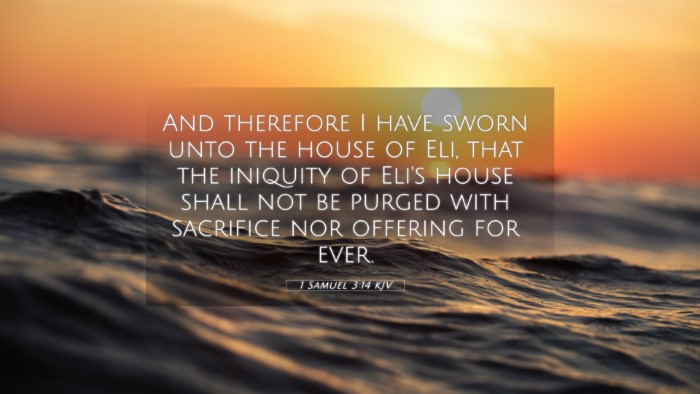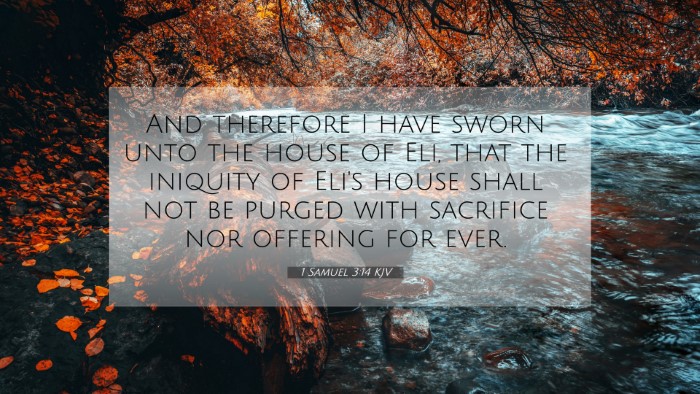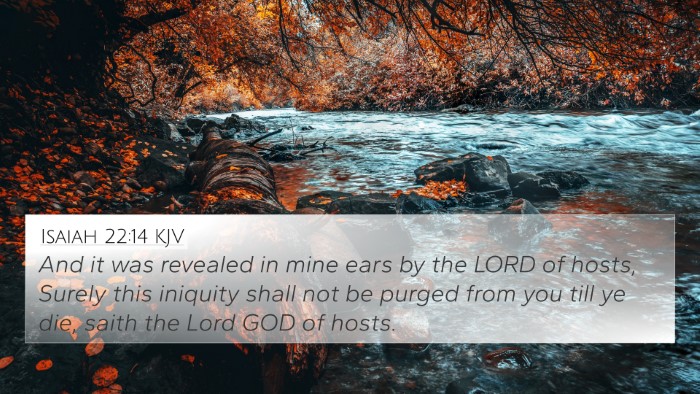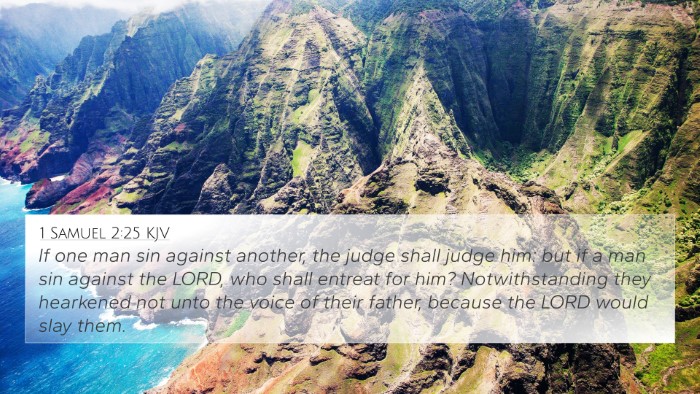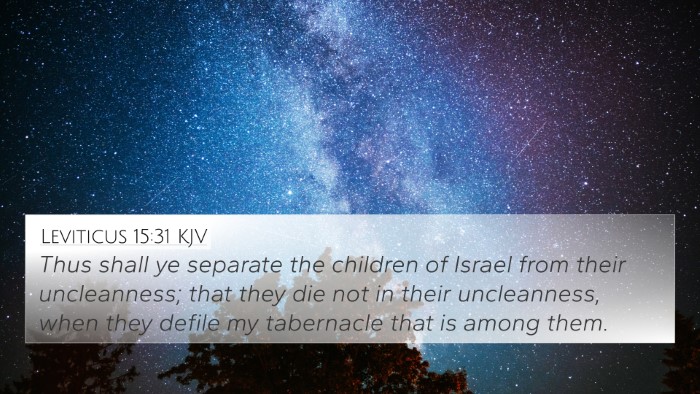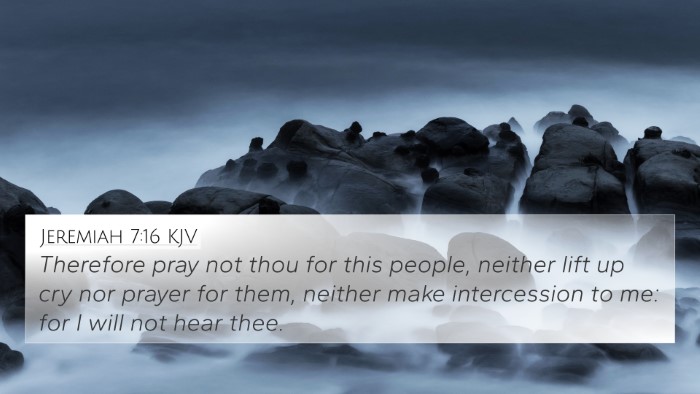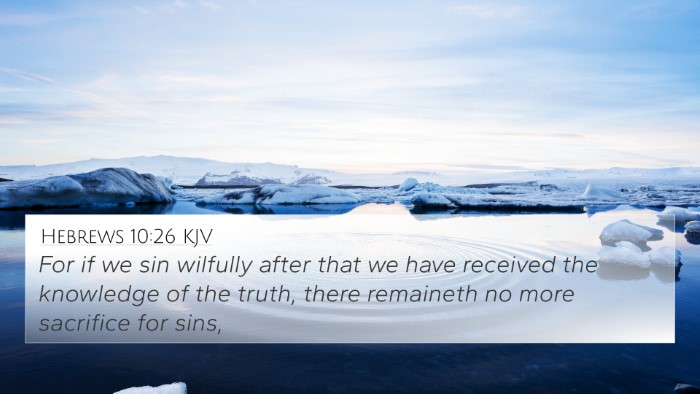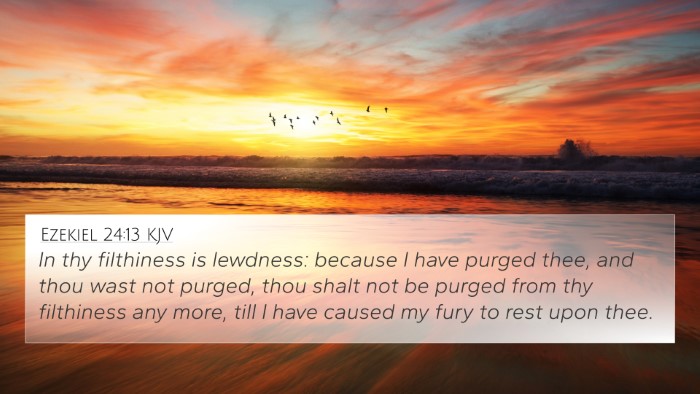Understanding 1 Samuel 3:14
Verse: "And therefore I have sworn unto the house of Eli, that the iniquity of Eli's house shall not be purged with sacrifice nor offering forever."
Summary of Meaning
This verse represents a critical moment in the biblical narrative regarding the judgment upon Eli's house due to his failure to restrain his sons. It signifies the gravity of Eli's sin and serves as a pivotal point in the theme of divine judgment throughout Scripture.
Commentary Insights
- Matthew Henry: Henry emphasizes the divine pronouncement against Eli's household, interpreting it as a solemn declaration that the consequences of their iniquities are irreversible through mere sacrifices. He views this as a warning of the seriousness of neglecting one's responsibilities, especially in spiritual leadership.
- Albert Barnes: Barnes notes that the phrase “shall not be purged” indicates that the guilt of Eli’s family is so significant that it cannot be atoned for by offerings. He explains that true repentance and a change of heart are required instead of ritualistic sacrifices that lack sincerity.
- Adam Clarke: Clarke points out the implications of Eli’s irresponsibility in failing to correct his sons, which led to a collective guilt that the sacrificial system could not remedy. He suggests that this serves as a powerful lesson about the weight of parental and spiritual leadership responsibilities.
Thematic Connections
This verse connects to several key themes in Scripture:
- The Judgment of God: It reflects the broader biblical theme of judgment upon unfaithfulness, seen in passages like Hebrews 10:26-27.
- Divine Grace vs. Justice: The tension between grace and justice is evident, paralleling Ezekiel 18:30-32.
- Leadership Accountability: References to how leaders are accountable for those they lead can be found in James 3:1.
- Consequences of Sin: The irreversible consequences of sin parallel Galatians 6:7 regarding reaping what one sows.
- Importance of True Repentance: This connects to Psalm 51:16-17, emphasizing that God desires a contrite heart over mere sacrifices.
- God's Sovereignty: The assurance of God’s ultimate control is echoed in Romans 9:15-18.
- Restoration and Redemption: Even in judgment, God offers paths to restoration, seen in 2 Chronicles 7:14.
Cross-References
1 Samuel 3:14 can be linked with the following verses:
- Hebrews 10:26-27 - Warning of judgment for willful sin.
- Ezekiel 18:30-32 - Call for repentance and turning from sin.
- James 3:1 - The heavy responsibility of teachers and leaders.
- Galatians 6:7 - Understanding the principle of sowing and reaping.
- Psalm 51:16-17 - Significance of a broken and contrite heart over rituals.
- Romans 9:15-18 - Discusses God's mercy and hardening of hearts.
- 2 Chronicles 7:14 - The promise of healing and restoration upon genuine humility and repentance.
Conclusion
1 Samuel 3:14 serves as a formidable reminder of the seriousness of spiritual leadership and the importance of sincere repentance. Through analyzing this verse, we see clear connections to broader biblical themes of judgment, accountability, and the need for genuine relationship with God rather than empty rituals. By cross-referencing this verse with others, one gains a deeper understanding of its implications and its place within the overarching narrative of Scripture.
Tools for Further Study
- Bible Concordance: To explore related terms and themes.
- Bible Cross-Reference Guide: For connecting different scriptures effectively.
- Cross-Reference Bible Study Methods: Techniques for practical application in study.
- Comprehensive Bible Cross-Reference Materials: Resources to aid in deeper understanding.
